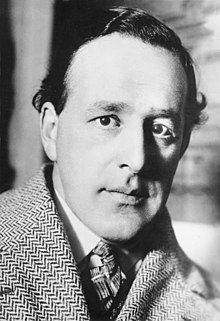
25 January 1881
ОТЛИЧНО СЪСТОЯНИЕ , ЗАБЕЛЕЖКА НА ПОСЛЕДНАТА СТРАНИЦА . САМОКОВЪ - БОРОВЕЦ .
Titre : NAPOLEON Payot 1929
Éditeur : Payot 1929
Date d'édition : 1929
Reliure : Couverture souple
Etat du livre : Bon
Edition : Edition originale
Emil Ludwig (25 January 1881 – 17 September 1948) was a German-Swiss author, known for his biographies and study of historical "greats '.
Emil Ludwig (originally named Emil Cohn) was born in Breslau, now part of Poland. Born into a Jewish family, he was raised as a non-Jew but was not baptized. “Many persons have become Jews since Hitler," he said. "I have been a Jew since the murder of Walther Rathenau [in 1922], from which date I have emphasized that I am a Jew.”[ Ludwig studied law but chose writing as a career. At first he wrote plays and novellas, also working as a journalist. In 1906, he moved to Switzerland, but, during World War I, he worked as a foreign correspondent for the Berliner Tageblatt in Vienna and Istanbul. He became a Swiss citizen in 1932, later emigrating to the United States in 1940.
After the 1921 trial of Soghomon Tehlirian for the assassination of Talat Pasha, the main architect of the Armenian Genocide, Ludwig wrote, "Only when a society of nations has organized itself as the protector of international order will no Armenian killer remain unpunished, because no Turkish Pasha has the right to send a nation into the desert".
During the 1920s, he achieved international fame for his popular biographies which combined historical fact and fiction with psychological analysis. After his biography of Goethe was published in 1920, he wrote several similar biographies, including one about Bismarck (1922–24) and another about Jesus (1928). As Ludwig's biographies were popular outside of Germany and were widely translated, he was one of the fortunate émigrés who had an income while living in the United States. His writings were considered particularly dangerous by Goebbels, who mentioned him in his journal.
Ludwig interviewed Benito Mussolini and on 1 December 1929 Mustafa Kemal Atatürk. His interview with the founder of the Republic of Turkey appeared in Wiener Freie Presse in March 1930, addressing issues of religion and music. He also interviewed Joseph Stalin in Moscow on 13 December 1931. An excerpt from this interview is included in Stalin book on Lenin. Ludwig describes this interview in his biography of Stalin.
Ludwig's extended interviews with T.G. Masaryk, founder and longtime president of Czechoslovakia, appeared as Defender of Democracy in 1936.
At the end of the Second World War, he went to Germany as a journalist, and it is to him that we owe the retrieving of Goethe's and Schiller's coffins, which had disappeared from Weimar in 1943/44. He returned to Switzerland after the war and died in 1948, in Moscia, a neighborhood, part of the commune of Ascona, in the canton of Ticino, which is the Italian part of Switzerland. In 1944, Ludwig wrote a letter to The New York Times where he urged that "Hitler’s fanaticism against the Jews could be exploited by the Allies. The Three Powers should send a proclamation to the German people through leaflets and to the German Government through neutral countries; threatening that further murdering of Jews would involve terrible retaliation after victory. This would drive a wedge into the already existing dissension of the generals and the Nazis, and also between ultra-Nazis and other Germans .
Emil Ludwig | |
|---|---|
 | |
| Born |
Emil Cohn
25 January 1881 Breslau, German Empire
|
| Died | 17 September 1948 (aged 67) Moscia, part of the commune of Ascona, Switzerland
|
| Nationality | German and Swiss |
| Occupation | Writer, journalist |
| Known for | Writing biographies |